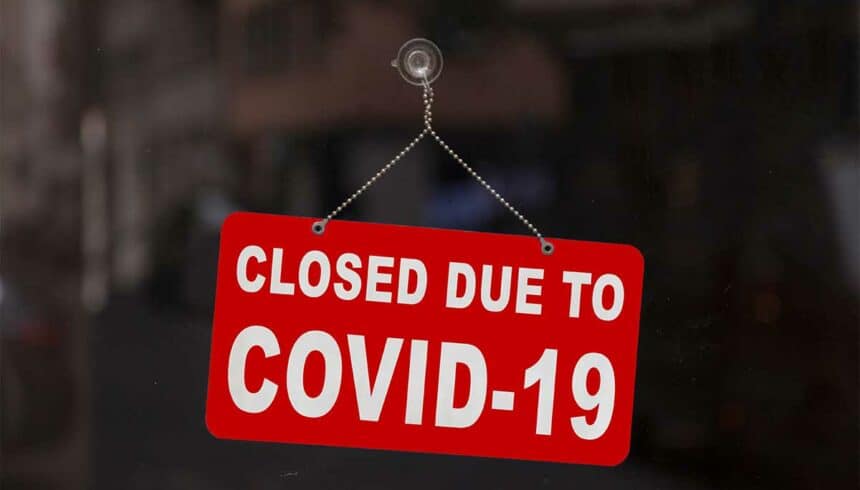We recently sat down with Andrea Baudo, Chartered Accountant, Statutory Auditor and Partner at BTA Baudo Tax & Accounting, to get his hot-take on how the COVID-19 pandemic is changing bankruptcy procedures.
Join us in discovering his unique insights gathered from working on the front lines in the legal and accounting professional throughout the crisis.
Andrea graduated in the year 2000 from Bocconi University of Milan in Economics. After his graduation, Andrea had an internship position in 2001 at Marks Paneth & Shron LLP, a CPA firm in New York. After gaining experience in the US, he started to work in his father’s Milan-based firm, Baudo – Gazzola Commercialisti Associati.
In 2004, Andrea became a qualified accountant and auditor under Italian Law. Andrea is now one of six partners at Baudo & Partners. He advises clients, mainly corporations, both Italian and foreign, on corporate tax and governance.
His clients’ activities are mainly in real estate, IT and e-commerce, insurance, logistics, shipping and cargo services. Andrea assists his clients on tax planning, start-up scaling, business strategy, restructuring, and reporting.

Since 2013, Andrea has worked with the Court of Milan on insolvency and bankruptcy procedures. Over the last two years, Andrea has been less involved in the Court of Milan Bankruptcy Division since the appointment of the official liquidator in bankruptcy procedure is now handled by the chairman of the court.
As a result of the COVID-19 pandemic, businesses across industries and the courts were forced to close in March 2020. From mid-May, commerce and legal procedures began to move forward once again.
Andrea comments:
“Of course, the number of bankruptcy procedures is far less than the previous years because the courts were closed. The silver lining is that people are less focused on taking action on bankruptcy procedures and they’re more focused on avoiding the need to take bankruptcy procedures.”
In the current climate, individuals and businesses who were facing bankruptcy in a pre-COVID world must now adapt to a host of new challenges and identify new opportunities to stay afloat. In Italy, the government has given business owners until October 15th 2020 to claim special provisions and negotiate the immediate impacts of the pandemic.
During the life-cycle of this governmental provision, companies cannot close employment contracts. To help curb the spread of the virus, Italy also introduced laws that force citizens to stay at home while receiving their paid salary on furlough.
According to Andrea, after October 15th, there will be a significant new influx of bankruptcy procedures and a whole new set of problems for the courts to contend with. To avoid this, the stimulus legislation is being considered for renewal for a few more months.
Andrea explains that although the situation may seem dire for business owners, the pandemic has presented an opportunity to restructure the commercial landscape going forward. Certain businesses can be protected, while others can be liquidated — creating a situation where businesses are able to help their peers overcome challenging times.
The business sectors that are chosen to be protected will all depend on new market demands. Areas chosen should have the potential to survive (and go on to thrive), and have a plan for debt payments to third parties — for example, suppliers and banks. For other businesses, restructuring may result in higher volumes of mergers and acquisitions.
Andrea predicts that:
“Small and medium-sized companies are likely to be the target of bigger companies or a foreign investor capable of granting financial support or a new market opportunity to facilitate survival.”
As of April 2020, Italian businesses were granted a number of benefits by the government based on the reduction in turnover across a variety of business sectors. For 2020, Italian businesses were not automatically obliged to apply a specific provision of the civil code if their minimum amount of regulated equity dropped below a certain threshold.
Typically, a businesses’ minimum amount of net equity cannot be negative. If the capital goes below a stated threshold, this automatically triggers the liquidation process. However, this isn’t the case for 2020 because of the unprecedented circumstances presented by COVID-19.
Andrea explains that if a company experiences big losses that reduce equity and slash capital value, they face a cash flow problem. Cash is burned to survive during difficult times and there is no guarantee that you can offset business spending with sales in a turbulent marketplace.
Should Companies Save or Spend?
Andrea offers the following advice:
“Beyond all doubt, businesses will face difficult times. But, at the same time, the current situation offers opportunities for companies with a strong cash position to invest and spend. Moments like this are precisely why businesses save money, and the prize will be very good compared to the risk. Forward-thinking businesses can grab new opportunities.”
We concluded our conversation with Andrea by asking how he feels the ongoing situation will impact the balance of power and control across various industries.
Andrea explains that while the pandemic accelerated the evolution of the economic situation from the previous year, the general shape of the market will remain the same.
Crucially, he believes the challenges presented by COVID-19 could trigger a new era for accountancy businesses as more and more businesses require specialist professionals to support restructuring strategies and bankruptcy procedures.
Andrea explains that as a Chartered Accountant and Statutory Auditor his role requires greater assistance in reviewing strategy to support the survival of businesses.
“New corporate structures, innovative business models, alternative revenue streams, and creative financing strategies all need dedicated focus to overcome the ongoing crisis."
Prepare for the Future with INAA
INAA is an International Association of Independent Accounting firms, established over 25 years ago to facilitate cross-border business. We connect accounting firms who are committed to delivering quality services and embracing challenges to champion progress.
We endeavour to be a part of the global conversation to stay up to date with changing bankruptcy procedures and the latest financial industry news.
Join today to build powerful business relationships.
